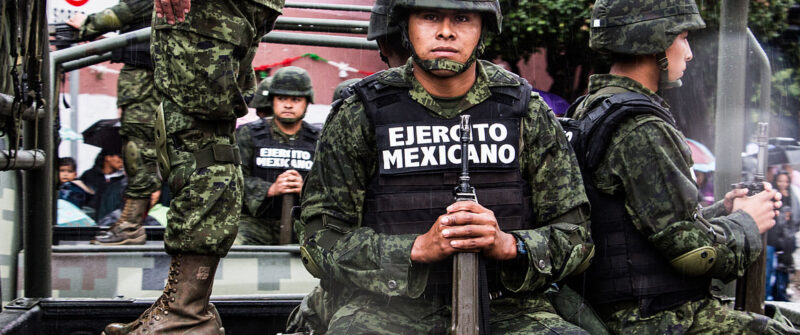Mexico’s 2024 general election season is one of the most violent in history, driven by the activities of organised crime groups. This raises crucial questions about whether the election will bring continuity or change in the security environment and its overall consequences for operational security and business risks.
Mexico’s general election campaign season is proving to be one of the most violent in the country’s history. There has been a considerable uptick in violence perpetrated by organised crime groups (OCGs) over the last year. This violence underscores the enduring power of OCGs, despite long-term efforts to combat them. The election raises crucial questions about whether we can expect continuity or change regarding the security environment, entailing numerous operational questions.
Mexico will on Sunday vote for legislators, governors, and tens of thousands of local government positions. In the background of the election is the persistent problem of organised crime. Reports show at least 34 candidates have been assassinated so far, alongside 272 cases of targeted violence (including threats, assassinations and kidnappings, predominantly impacting campaigners and their families). OCGs use violence to coerce candidates and target those seen to be a threat to their operations.
Electoral violence demonstrates the repeated failures over decades to deal with the problem. The incumbent Andrés Manuel López Obrador (“AMLO”, who has reached his term limit) initially proposed a “hugs not bullets” approach. This has however been ineffective. Reported homicide rates are at historic highs, and real figures are likely to be even higher due to statistical reclassifications. Both inter-OCG violence and clashes with state security personnel have also increased in recent years. Policy failure means that cartels have increased their grip in recent years, something that has reportedly been tolerated by the state.
Despite these failures, the anticipated presidential victor – Claudia Sheinbaum (of AMLO’s Morena party) – has failed to offer an alternative. Her proposals lack specifics and have rejected an “iron fist” approach. Even if she manages to offer substantive socioeconomic reforms (a key part of Morena’s strategy), reductions to OCG violence would likely take years to materialise.

The failure by Sheinbaum to lay out a substantive security strategy means continuity in the security environment is likely. This entails a host of likely operational concerns over the coming years.
Those seen to hinder the interests and operations of gangs (particularly politicians, journalists, human rights workers and lawyers) face an elevated risk of targeted killings. Gangs have demonstrated little regard for civilian collateral impact, something that is likely to continue. Risks over the immediate term are particularly high for political candidates, and therefore those in close proximity to them.
Widespread insecurity has sparked protests and strikes by truckers (who are increasingly targeted by cartels), leading to considerable travel and operational disruption last February (including on major highways nationwide and those towards Mexico City ). These problems are likely to continue over the medium term, given the unwillingness or incapacity of the state to stem the problem.
The toleration of cartels by the government has facilitated an increase in extortion and interference. Businesses are forced to pay and cooperate with OCGs, or risk being victims of violence. Cartels have used such tactics to diversify their revenue streams. Such threats show no signs of abating, are present for enterprises nationwide, and raise concerns over reputational and legal risks.
Sheinbaum has signalled a pivot to renewable energy. Such projects will be exposed to economic and political interests by OCGs, and may even be targeted to exert influence on local government and private enterprises. This will therefore likely raise operational costs, due to the need to provide security.
Leave a comment below or ask us directly. For more information on our bespoke risk management services, book a call today. Order custom analyst papers like our Traveller Insight to stay informed and ahead of the curve.